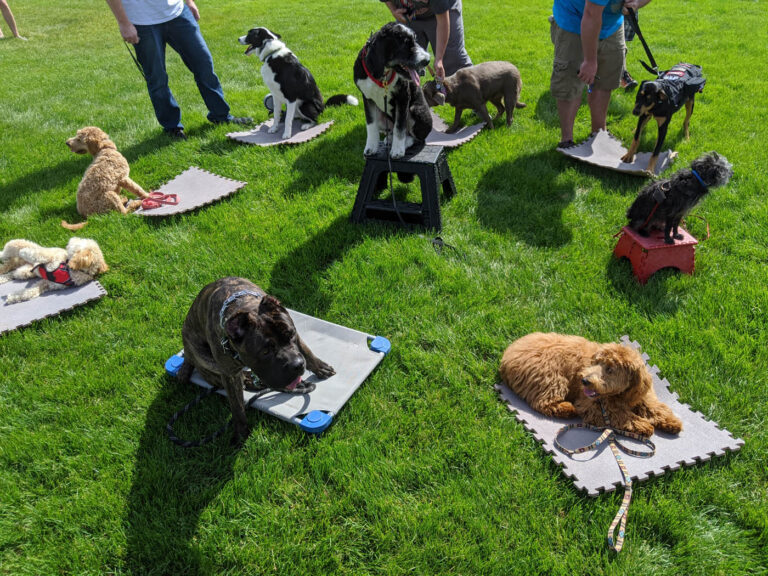A Paw-site Start for New Dog Parents
Welcoming a dog into your home is a joyous occasion that comes with love, laughter, and a bit of chaos. Whether you’re adopting a puppy or providing a forever home to a rescued dog, this new addition to your family is sure to bring endless happiness. However, being a dog parent also comes with responsibilities that require patience, understanding, and preparation. This guide aims to equip you with essential tips that will help you and your furry friend settle into this new life together.
Preparing for Your New Dog
Choosing the right dog breed or adoption route is the first step in your pet parenting journey. Consider your lifestyle, living space, and activity level. Some breeds require more exercise and grooming, while others may be more suitable for apartment living. Adoption is a great option, offering countless lovable dogs in need of homes. Research local shelters and rescues to find a pet that matches your requirements.
Once you’ve chosen your new dog, it’s time to set up a dog-friendly home. Ensure you have all the essentials, such as food and water bowls, a comfortable bed, and toys. Childproof your home by removing any hazards, securing loose wires, and storing harmful substances out of reach. Creating a designated area for your dog can help them adjust to their new environment more easily.
Training is crucial to a harmonious relationship between you and your dog. Basic obedience commands, such as sit, stay, and recall, are essential for safety and communication. Investing time in training will help build trust and respect, making everyday interactions more enjoyable. Think about enrolling in a dog training school, such as those found in Utah County, to learn effective techniques and receive expert guidance.
First Days Home
Bringing your new dog home is exciting, but it can also be overwhelming for both of you. Establishing a routine from day one will help your dog feel secure and understand what’s expected of them. Set consistent feeding schedules, and ensure they have access to fresh water at all times. A regular potty schedule will aid in successful house training and help prevent accidents.
Creating a safe space for your dog is essential. This could be a cozy corner with their bed and toys or a designated room where they can retreat when they feel anxious or overwhelmed. Allow your dog time to explore their new home at their own pace, and be patient as they adjust to their surroundings.
Potty training is one of the first challenges new dog parents face. Consistency and positive reinforcement are key. Take your dog outside regularly, especially after meals and naps, and reward them with praise or treats when they go potty in the designated area. Accidents will happen, but remain patient and avoid punishment, as this can lead to fear and confusion.
Health and Wellness
Regular vet visits are essential to keep your dog healthy and catch any potential issues early. Schedule an initial check-up soon after bringing your dog home to establish their baseline health. Vaccinations protect against common diseases, so ensure your dog is up-to-date with their shots. Discuss a vaccination schedule with your veterinarian to maintain your pet’s health.
A balanced diet is crucial for your dog’s well-being. Consult your vet to determine the best food options based on your dog’s age, size, and breed. High-quality dog food provides the necessary nutrients for growth and development. Avoid overfeeding or giving too many treats, as obesity can lead to various health problems.
Keeping your dog physically active and mentally stimulated is vital for their overall happiness. Daily walks, playtime, and training sessions will keep your dog fit and engaged. Regular exercise also helps prevent behavioral issues, such as excessive barking or destructive chewing, caused by pent-up energy.
Socialization
Early socialization plays a vital role in shaping a well-adjusted adult dog. Expose your dog to different environments, people, and animals to build their confidence and comfort levels. Arrange playdates with other dogs, visit dog-friendly parks, and invite friends over to meet your new furry family member.
Introducing your dog to new people and pets should be done gradually and positively. Allow them to approach at their own pace, and reward calm behavior with treats. This will help your dog form positive associations with new experiences, reducing anxiety and fear.
Socialization isn’t just about meeting new friends; it’s also about exposing your dog to various stimuli, such as loud noises, different surfaces, and car rides. The more your dog experiences these situations, the better equipped they will be to handle them calmly in the future.
Ongoing Care
Creating a daily routine is important for maintaining your dog’s health and well-being. Consistent feeding times, regular walks, and designated playtime will help your dog feel secure and balanced. Sticking to a routine also makes it easier to detect any changes in behavior that may indicate health issues.
Grooming is an essential part of ongoing care, helping to maintain your dog’s coat, skin, and overall hygiene. Brush your dog’s fur regularly to prevent matting and reduce shedding. Bathe them as needed and ensure their nails are trimmed. Dental care is also crucial—brush your dog’s teeth regularly or provide dental chews to keep their mouth healthy.
Mental stimulation is just as important as physical exercise for your dog’s overall well-being. Interactive toys, puzzle feeders, and training sessions help keep your dog’s mind sharp and prevent boredom. Rotate toys regularly to keep things fresh, and incorporate new challenges to keep them engaged.
Common Challenges for New Dog Parents
Separation anxiety is a common issue among new dogs, especially those transitioning from shelters. Gradually get your dog used to being alone by leaving them for short periods and gradually increasing the time. Providing puzzle toys or chewables during your absence can keep them occupied and reduce anxiety.
Excessive barking can be frustrating for dog parents and neighbors alike. Identify the cause of the barking, whether it’s boredom, fear, or attention-seeking. Address the underlying issue and use positive reinforcement to teach your dog appropriate behavior. Consistency and patience are key to overcoming this challenge.
Behavioral issues, such as aggression or destructive chewing, can be addressed with training and redirection. Understand the root cause of the behavior and work to eliminate triggers. If necessary, consult a professional dog trainer or behaviorist for guidance in addressing these challenges.
Conclusion
Becoming a new dog parent is a rewarding adventure filled with love, laughter, and learning. By following these must-know tips, you’ll be well-equipped to provide a happy and healthy environment for your furry friend. Remember, patience and consistency are key to building a strong bond with your dog.


